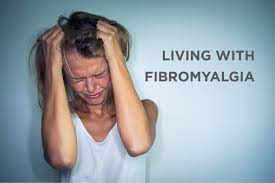FIBROMYALGIA IN A NUTSHELL
Fibromyalgia is a neurosensory disorder once considered by mainstream medicine as purely psychosomatic.
Fibromyalgia is a neurosensory disorder once considered by mainstream medicine as purely psychosomatic. The disorder is characterized by disturbances in the way the central nervous system (CNS) interprets and evaluates stimuli; the CNS may interpret innocuous stimuli as painful and may overly respond to pain.
While the cause(s) of fibromyalgia remains unknown, it has been linked with disorders of inflammation and possibly mitochondrial dysfunction, as well as hormonal and neurotransmitter imbalance.
What are the Signs and Symptoms of Fibromyalgia?
- Widespread chronic pain; can be tingling, crawling, burning, throbbing, etc.
- Chronic fatigue
- Sleep disturbances
- Mood disturbances (eg, anxiety or depression)
- Cognitive difficulties (eg, trouble concentrating or remembering details)
- Migraine and tension headaches
- Other symptoms can include irritable bowel, urinary problems, weight fluctuations, and sexual dysfunction
Note: Individuals with fibromyalgia can be affected differently; the common symptom is chronic pain.
What are Conventional Medical Treatments for Fibromyalgia?
Note: Fibromyalgia treatment is generally multi-faceted, incorporating pharmacologic and non-pharmacologic therapies for best results.
- Pain relievers (eg, opioids, nonopioid analgesics, local anesthetics)
- Sleep aids
- Anti-inflammatories (eg, nonsteroidal anti-inflammatory drugs [NSAIDs])
- Antidepressants
- Botulinum toxin (Botox)
- Muscle relaxants
- Anticonvulsants
- Education concerning the diagnosis and treatment of fibromyalgia
- Cognitive-behavioral therapy
What Dietary and Lifestyle Changes May Be Beneficial for Fibromyalgia?
- Exercise regularly
- Quit smoking
- Reduce alcohol consumption
- Eat a healthy, well-balanced, antioxidant-rich diet
- Yoga and meditation
What Natural Interventions May Be Beneficial for Fibromyalgia?
- Magnesium. Low magnesium levels may be associated with the development and severity of fibromyalgia. Supplementation has been shown to improve symptoms.
- Melatonin. Fibromyalgia patients often have low levels of melatonin and secrete less at night than healthy individuals. For these people, melatonin supplementation has been shown to improve symptoms.
- S-adenosyl-L-methionine (SAMe). SAMe supplementation is linked to improvements in morning stiffness, fatigue, quality of sleep, and clinical disease activity among fibromyalgia patients. SAMe may also provide relief from depression.
- D-ribose. Supplementation with this sugar has been shown to improve energy, sleep, mental clarity, pain intensity, and general well-being in fibromyalgia patients. Another trial showed that it improved exercise capacity, vitality, and mental outlook.
- Chlorella. Chlorella is a genus of algae that contains vitamins, minerals, dietary fiber, nucleic acids, amino acids, and other important substances. Chlorella has been shown to relieve symptoms of fibromyalgia when used as a supplement.
- 5-hydroxytryptophan (5-HTP). 5-HTP is an endogenous precursor to serotonin. Supplementation in fibromyalgia patients has been shown to improve anxiety, pain intensity, quality of sleep, fatigue, and tender point count.
- Coenzyme Q10 (CoQ10). Low levels of CoQ10 are associated with fibromyalgia symptoms, and supplementation was shown in a small trial to significantly improve symptoms.
- Acetyl-L-carnitine. Carnitine deficits may play a role in fibromyalgia; in one study, oral and intramuscular injections of acetyl-L-carnitine significantly improved pain and cognitive symptoms.
- Omega-3 fatty acids. Omega-3 fatty acids have been shown to reduce inflammation. Supplementation is linked to improvements in pain severity, tender point counts, fatigue, and depression among patients with fibromyalgia.
- Vitamin D. Vitamin D deficiency is frequently observed in patients with fibromyalgia. A clinical trial found that increasing vitamin D levels to ≥ 30 ng/mL significantly improved symptoms in many fibromyalgia patients; the improvement became more significant when levels exceeded 50 ng/mL.
- Other natural interventions that may provide benefits for people with fibromyalgia include superoxide dismutase (SOD), vitamins A, C, and E, zinc, B vitamins, and nicotinamide adenine dinucleotide (NADH).
Diagnosing Fibromyalgia?
Therefore, distinguishing the symptoms associated with fibromyalgia from the aforementioned conditions can be fairly confusing, even for experienced physicians . For these reasons, fibromyalgia is primarily a diagnosis of exclusion, which means that other diseases and disorders must first be ruled out.
Most experts in the field of fibromyalgia recommend a multifaceted, tailored treatment program incorporating both pharmacologic and nonpharmacologic therapy (e.g., education, physical therapy and cognitive behavioral therapy). An appropriate fibromyalgia management program should be aimed at symptomatic treatment of pain, fatigue and sleep quality, as well as improving physical capacity and emotional balance.

